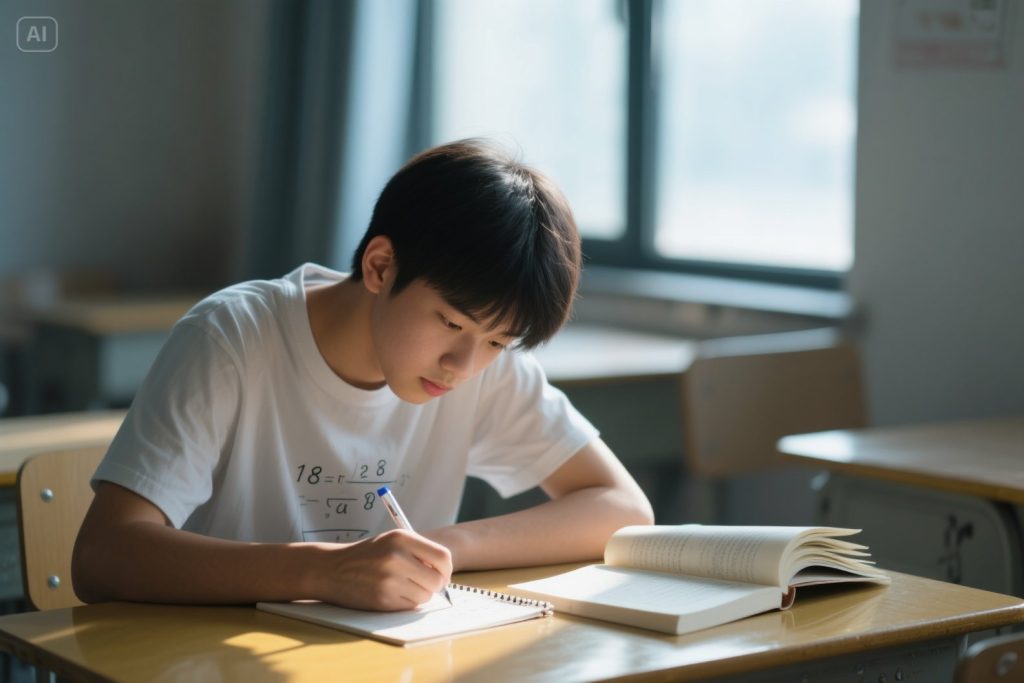DSE Chinese Literature Guide: What is it? Who Should Take It? Complete Breakdown of the Course, Grading, and Further Study Pathways
- 2025-05-20

What is the DSE Chinese Literature subject? Who is it for? Overview of the course, grading system, and academic/career pathways!
1️⃣ DSE Chinese Literature Course Overview & Key Features
DSE Chinese Literature is an elective subject in the Hong Kong Diploma of Secondary Education (DSE) that is suitable for students interested in literature, writing, and Chinese culture. Unlike “Chinese Language,” this subject focuses on the appreciation and creation of literary works, helping students develop an understanding, emotional connection, and critical thinking towards classical and modern Chinese literary classics.
Key Features of the Course:
| Feature | Description |
|---|---|
| 📚 Dual Focus | Literary Appreciation + Creative Writing |
| 🏮 Classical & Modern Balance | Study texts from The Book of Songs, Tang and Song poetry, to works by Lu Xun, Eileen Chang, Hong Kong authors, etc. |
| 🧠 Critical Thinking & Creation | Train students to analyze text themes, rhetorical devices, while encouraging original writing |
| 🧧 Cultural Heritage Emphasis | Deepen understanding and critique of Chinese culture, aesthetics, and societal values |
2️⃣ DSE Chinese Literature Course Structure (2024 Latest Version)
Required Part (Literary Appreciation)
| Time Period | Author/Example Texts | Key Learning Focus |
|---|---|---|
| Classical Literature | The Book of Songs, Du Fu, Li Qingzhao, Su Shi | Imagery analysis, rhetorical techniques, emotional structure |
| Modern Literature | Lu Xun, Eileen Chang, Bai Xianyong | Theme exploration, character development, narrative techniques |
| Hong Kong Literature | Xi Xi, Ye Si, Wong Bik Wan | Urban writing, local consciousness, social critique |
Elective Modules (Choose 2 out of 4)
| Module Name | Core Learning Focus | Typical Question Types |
|---|---|---|
| Literature & Film | Adaptations of literary works into films, comparison of text and cinematic language | Compare original vs. adaptation, analyze audiovisual vs. written techniques |
| Literature & Culture | Traditional festivals, myths, and historical cultural symbols | Cultural symbolism in poetry, historical context |
| Literature & Emotion | Exploration of emotions like love, family, friendship in literature | Thematic analysis, emotional character change |
| Literature & Society | Social critique and historical reflections in literature (e.g., Cultural Revolution novels) | Analyzing literary works’ historical background and social issues |
DSE Chinese Literature Assessment Methods & Score Distribution
Public Examination (70%)
| Paper | Content | Assessment Focus | Time / Weighting |
|---|---|---|---|
| Paper 1 | Appreciation of specified works (3 choices, 2 answers) | Text comprehension, argument structure, rhetorical analysis | 2 hours / 35% |
| Paper 2 | Appreciation of extra-text excerpts + creative writing prompt | Creativity, use of literary techniques, writing expression | 2 hours / 35% |
School-Based Assessment (SBA, 30%)
| Requirement | Description |
|---|---|
| Research Report | A 5000-word literary research paper or creative analysis (must include academic citations) |
| Required Elements | Intertextual analysis, creative reflection, at least 5 sources cited |
| Example Topics | “The Spirit of Chivalry in Jin Yong’s Novels and Its Dialogue with Modern Values” |
DSE Chinese Literature Study Strategies & Exam Tips 🔍
Three-Step Literary Appreciation Method:
- Surface Understanding: Organize plot, character relationships, and imagery usage
- In-depth Interpretation: Extract themes, metaphors, and symbolic techniques
- Cultural Connection: Link historical background, values, and societal changes
Classical Poetry Appreciation Tips:
- “Scenery → Emotion → Reason”: Build emotion through imagery and connect it to the deeper meaning
- “Focus on Word Choice”: Pay attention to verbs and modal words for nuanced expression
Creative Writing Tips:
| Structure Section | Writing Recommendations |
|---|---|
| Introduction | Introduce with imagery or suspense to engage interest |
| Body | Focus on detailed descriptions, emotional build-up, character psychology |
| Conclusion | Conclude with a philosophical reflection or symbolic meaning to elevate the structure |
Essential Learning Resources 📚
| Resource Type | Recommended Resources | Purpose |
|---|---|---|
| Textbook | DSE Chinese Literature Exam Guide | In-depth analysis of model essays and exam question types |
| Reference Book | Handbook of Literary Criticism Terms | Literary theory vocabulary, rhetorical explanations |
| Online Platforms | Chinese Classical Literature Database, CNKI | Poetry recitation, literature searches |
| Tutoring/Activities | Hong Kong Literature Museum, Writing Workshops | Practical training, writer seminars |
DSE Chinese Literature Common Difficulties & Solutions
| Issue Type | Suggested Solutions |
|---|---|
| Difficulty Understanding Classical Chinese | Read short texts daily and create “ancient vs. modern” word flashcards |
| Superficial Theme Analysis | Use probing questions like, “What cultural/critiques does the author convey through imagery?” |
| Lack of Depth in SBA Papers | Incorporate cross-media materials (e.g., films/paintings) or conduct field interviews for a richer perspective |
Grading Criteria & High-Score Examples ✨
📌 Example Question: “Compare the thematic similarities between Spring望 and modern disaster literature.”
High-Score Approach:
- Reference scholars’ perspectives (e.g., Yu Wen Suo An)
- Compare imagery and context between ancient and modern texts
- Comment on how literature responds to historical trauma
Common Pitfalls:
- Vague discussions on rhetorical techniques without cultural analysis
- Lack of concrete text comparisons, off-topic writing
DSE Chinese Literature Academic & Career Pathways 🧑🎓
Academic Pathways:
- Further Studies: Chinese Language & Literature, Comparative Literature, Cultural Studies, Creative Writing
- Educational Sector: Secondary School Chinese Teacher, Writing Tutor
- Publishing & Media: Editor, Cultural Journalist, Content Curator
- Creative Industry: Drama Scriptwriter, Fiction Writer, Cross-media Literary Creator
Note:
The above information is for reference only. For official updates, please visit the Hong Kong Education Bureau website:
🔗 www.edb.gov.hk
This draft was written and organized with AI assistance. Edited by Professor Chan Kwok Wai. Responsible Editor: Kong Yi Leung.

